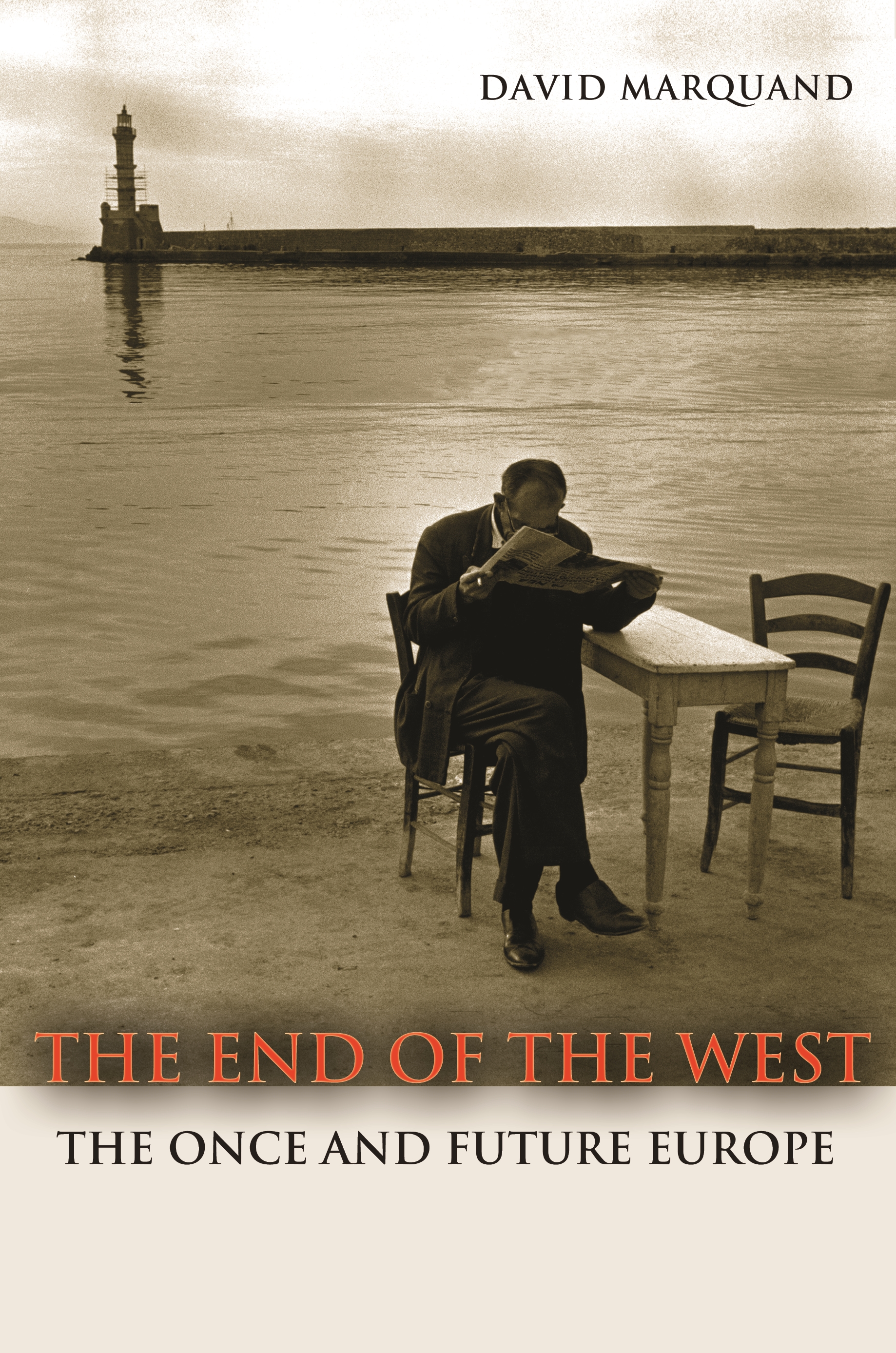The End of the World as We Know It?
It has been almost one hundred years since the German philosopher and historian Oswald Spengler published Der Untergang des Abendlandes (The Downfall of the Occident), perhaps the first work detailing the decline of the West, and the "end of the West" genre remains as popular as ever. Spengler's work resonated deeply with those on the far right politically in Europe (especially Germany) in the 1920s and 1930s.

But the "end" that David Marquand writes of in The End of the West is not a Spenglerian declension narrative in which the West is swept away by India and China. Rather Europeans according to Marquand need to embrace the fact that their cherished idea of western dominance, always historically flawed in the first place, has "grown threadbare with use." The financial crisis of the last few years has only made obvious what had been true all along that "these assumptions had always been patronizing and misleading. They are now manifestly absurd." Only by accepting the "end of the West" can a united Europe emerge and take its place alongside the United States, India, and China as a major player in global politics. Marquand then intends his work to be a wake-up call to those who still cling to the idea of a triumphant Europe.
Marquand's topic is the history of the idea of Europe since 1945: How that idea helped to construct the European Union; what its chief architects wanted the E.U. to be; what it has in effect turned into; and the messy politics and economics that have of late undermined European integration.
Marquand reminds his audience of the important successes that Europe has witnessed since 1945. Franco-German antagonism, which was certainly a significant factor in the global conflagrations of the early 20th century, has been largely put to bed and "Europe enjoyed a longer period of peace than at any time since the Roman Empire." Furthermore
he contends that with the end of the Cold War "the double victory of democracy and tamed capitalism was both child and parent of one of the most hopeful political projects of the twentieth century - the deliberate construction of a supranational European Community, based on law rather than force, in which ancient enemies could live together in peace."
What began as a supranational entity that controlled the coal and steel industries and included six European countries now includes 27 member states. The European Union's population stands at 500 million with a combined GDP of $16 trillion outpacing the U.S. by $2 trillion.
Yet all is not well with the E.U. One of the more interesting and important points that Marquand makes is that while the Eurozone nations have Europeanized monetary policy they have not Europeanized fiscal policy. In real terms this has meant that the weaker Eurozone economies are "trapped in the straitjacket of an overvalued currency that inhibits the Keynesian pump priming that the times demand, and may force them into economically disastrous and socially disruptive deflation."
In addition to these economic concerns, and most certainly exacerbated by economics, the bulk of Marquand's book is devoted to answering three questions he has identified that must be answered if the E.U. is to be the future Europe that the author wishes it to be. The first deals with ethnicity and identity, the second with governance and authority, and the third with defining what exactly is Europe.
The E.U. was explicitly designed to ignore competing nationalisms. In the early 20th century Europe had learned the hard lesson that competing ethnic nationalities can kill, in numbers and scale unheard of before the Somme and Auschwitz.
Yet in the last generation or so Europe has witnessed a rising tide of regional, neo-medieval provincialism. In and of itself this may not be a problem, as Marquand believes that an individual can be Welsh, British, and a European all at once. However as European states have handed over substantial power to the Union, individuals identify less and less with their attendant nations and more to the local level. If the nation can't protect the laborer against the onslaught of globalization then perhaps their fellow Burgundians or Bavarians can.
Along with this postmodern neo-medievalism Marquand identifies resurgent Islamophobia as infecting Europe's sense of identity. Most importantly the scapegoating of Muslims reifies the idea of the Enlightened, progressive West versus the rapacious East. It also ignores the historical influence and presence that Islam (especially in medieval Spain) had on the course of European history.
In addressing the politics of the federalism of the Union, Marquand bemoans that there is no European equivalent of a James Madison to make the case to the general public for creating a federal state. In fact, he points out that while not perfect there is much in the history of the United States that the European could learn from.
But what is perhaps most important for politicians to do now is to develop a European public sphere and instill the growth of a European demos. For too long the politicians who held positions in the European Union were technocratic officials first and foremost and public figures almost never. Electing politicians of the more public type could go a long way in starting a conversation about the future of the Union.
As a former member of the British Parliament and official of the European Commission Marquand is uniquely situated to write on such a topic, and history or political science instructors should certainly consider adding this text to their syllabi. However the reviewer does wonder if the title of the book might be somewhat misleading as Spengler's work in some sense dominates our imagination so deeply. A Spenglerian jeremiad this text is not, and that is a good thing.
